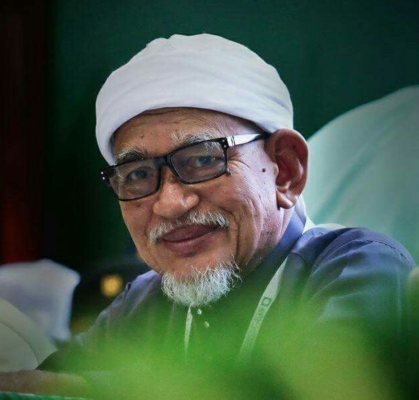Dato Sri Abdul Hadi Awang is a prominent Malaysian politician and the President of Parti Islam Se-Malaysia (PAS), one of the leading Islamic political parties in the country. Born on October 20, 1947, in Marang, Terengganu, Hadi Awang has had a significant influence on the political and Islamic landscape of Malaysia. He has served as a Member of Parliament (MP) for the Marang constituency and has been a key figure in Malaysian politics for several decades, especially in the context of PAS and its vision of Islam as a guiding principle for governance.
Early Life and Education
Hadi Awang grew up in a religious family and was deeply influenced by Islamic teachings from a young age. He pursued his higher education in Al-Azhar University in Egypt, one of the most prestigious institutions for Islamic studies. There, he gained extensive knowledge of Islamic jurisprudence (Fiqh), theology (Aqidah), and Islamic civilization. His academic background laid the foundation for his later role as both a religious leader and a political figure.
Political Career and Leadership in PAS
Hadi Awang first became involved in politics in the early 1970s and joined PAS, which at the time was a major Islamic political party in Malaysia. Over the years, he ascended through the ranks of the party, becoming its president in 2002. Under his leadership, PAS has shifted towards a more conservative and Islamist stance, advocating for the implementation of Islamic law (Sharia) and a society based on Islamic values.
As President of PAS, Hadi Awang has been a vocal advocate for Islamic governance in Malaysia. His leadership has seen the party advocate for the creation of an Islamic state, although the specifics of this vision have evolved over time. While PAS has sometimes collaborated with other political parties, including those in the opposition and the ruling coalition, Hadi Awang has been a firm proponent of the idea that Malaysia’s political system should be deeply rooted in Islam.
Contributions and Political Influence
Hadi Awang's tenure as the President of PAS has been marked by his strong stance on social issues, including his advocacy for an Islamic economy, family values, and education rooted in Islamic principles. He is also a significant figure in the context of Pakatan Rakyat (the opposition alliance) and later in Perikatan Nasional, a political coalition in which PAS played a critical role in the 2020s.
His influence extends beyond party politics, as Hadi Awang is regarded as one of Malaysia's foremost Islamic scholars and is frequently consulted on matters related to Sharia law and the role of Islam in Malaysian society. Throughout his career, Hadi Awang has been a polarizing figure—while admired by many for his commitment to Islamic ideals, he has also faced criticism from both secularists and political opponents for his conservative views.
Controversies and Political Shifts
Hadi Awang has been involved in several controversial statements and actions, particularly regarding the implementation of Hudud law (Islamic criminal laws), which PAS has long advocated. His position on the Islamic state and his alignment with conservative religious views have led to both support and opposition, especially in the diverse and multi-religious context of Malaysian politics.
Despite facing significant political challenges and internal divisions within his party, Hadi Awang remains a key player in Malaysia’s political scene, especially among Malay-Muslim voters. His leadership has seen PAS grow both in influence and political power, especially in the context of coalition governments and the shifting dynamics of Malaysian politics.
Conclusion
Abdul Hadi Awang's career reflects a complex balance between religious ideology and political pragmatism. As the leader of PAS, he continues to play a significant role in shaping Malaysia's political future, especially as debates over the role of Islam in the country’s governance persist. With his commitment to Islamic values and his leadership within one of Malaysia’s most influential political parties, Hadi Awang remains a defining figure in the nation’s political and religious discourse.


